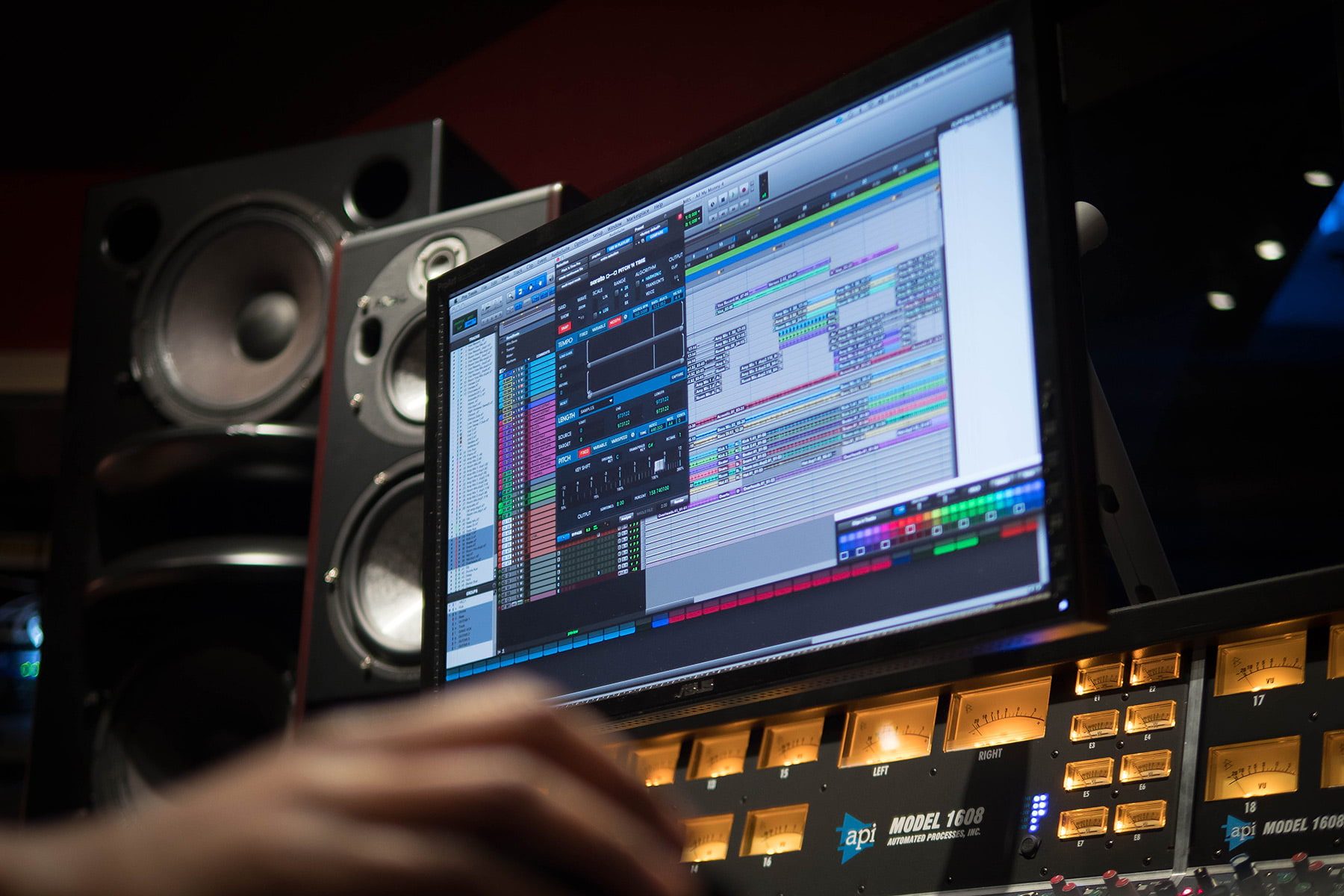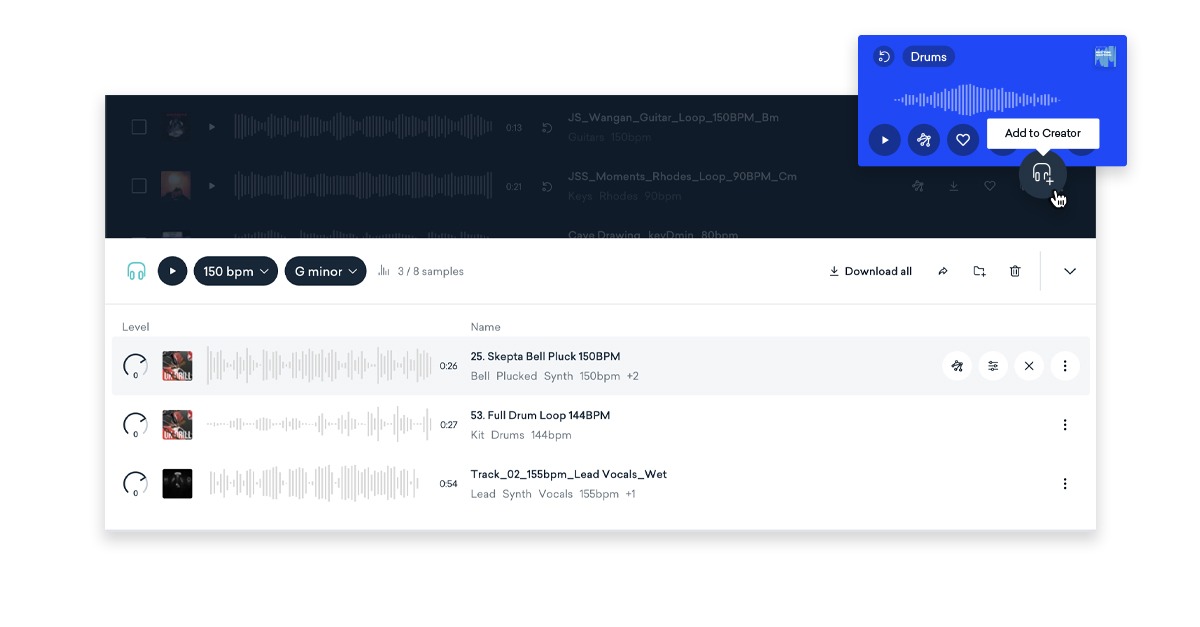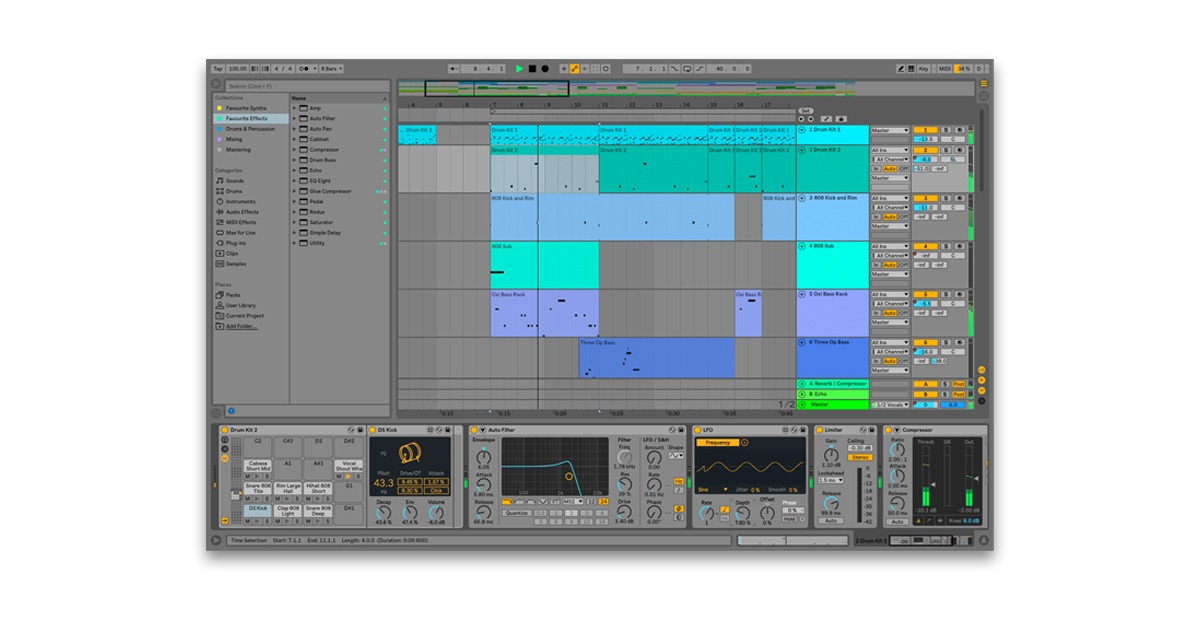Browsing through piles of samples to seek out the right sound for your beat is like looking for a needle in a haystack. To hear the way a sample sounds in context with your beat it has to match your beat’s key and tempo. The best way to do this is with pitch shifting and time stretching. The best part is free time stretching and pitch shifting tools exist that will help you independently change the tempo or key of any sample you discover. It’s remarkable how this technology changes all the things about beat-making. In this article, we’ll explore why time stretching and pitch shifting tools are so useful to every music producer—and we’ll take a look at specific ways you should use them in your music-making workflow.
What is time stretching?
In audio production, time-stretching refers to a kind of audio processing that increases or contracts the duration of a sample or track without changing its pitch or tonal characteristics.
Time stretching technology uses complicated algorithms, mathematics, and even AI to warp the fabric of time without changing the pitch of a sample.
What is pitch shifting?
Pitch shifting is different from time stretching because it changes the pitch of a sample or sound without affecting its duration or timing.
Again, pitch-shifting technology makes use of its own set of complicated mathematical operations to increase or decrease a sample’s pitch.
Why time stretching and pitch changes everything
The advent of time stretching and pitch shifting marked the main change in music production.
With analog media like vinyl or tape, speeding up or slowing down a sample always resulted in a pitching change.
In fact, that sped-up vocal sound was used heavily and inspired entire genres of music.
Many vintage recordings of 60s bands like The Beatles used varispeed recording methods.
Drum and bass music almost exclusively makes use of sped-up drum breaks to create impossibly fast, hi pitch drum parts.
However, those varispeed methods were limited because they made it hard to exactly match any sample to any track.
That’s why today’s pitch shifting and time stretching technology is so incredibly useful, especially because it’s accessible to any producer through online apps, plugins, and DAWs.
The way to use pitch-shifting and time-stretching
Artists use time stretching and pitch shifting in some ways.
Here’s a handful of use instances you’ll hear most often.
Matching to a new key
Having the ability to match any sample to any key opens up so many worlds of possibilities, it’s kind of mind-blowing.
When you browse a sample market place you don’t need to limit yourself and filter out different keys.
Instead, you should use whatever sounds you encounter and not worry about what key they’re in.
Making a sample minor or major
This is enormous. Being able to change a sample from minor to major is such an interesting capability as a result of it creates new samples with a completely different energy.
Much like key matching, the ability to change a sample to its relative minor or major key opens up so many doors.
Pitch shifting vocals
Pitch shifting technology changed the game when it came to vocal processing.
Yes—legendary plugins like Auto-Tune use this kind of technology to shift every note in vocal performance to be on-pitch with the track.
Today Auto-Tune Access may even shift vocals in real-time, making it possible to monitor your affected voice.
Matching BPM
The most obvious application for time stretching technology is matching BPM between different samples without any changes in pitch.
Again this eliminates some major limitations in terms of finding the right sample for your track.
Free time stretching and pitch shifting tools
So how can you take advantage of the wonder that is time stretching and pitch shifting?
Here are the most effective tools we’ve seen for this kind of audio processing
1. Creator
The creator is the new beat-making tool for LANDR Samples—and it’s completely free to make use of!
It lets you compile up to eight samples from LANDR’s in-depth sample library and hear how they sound together no matter their key or BPM.
The multitrack looping tool comes with built-in time stretching and pitch shifting technology to make it simple to audition samples together and download them to play within your DAW.
2. Auto-Tune
As mentioned below, Auto-Tune makes use of pitch-shifting technology to control the human voice and tune it to a chosen key.
3. Some DAWs
DAWs like Ableton and Logic come stock with some impressive pitch shift and time-stretching technology of their own.
Logic is famous for its flex time feature and Ableton built its name on its audio warp function.
When you’re choosing out a DAW to make use of for your own music, we’ve discussed the best DAWs in past articles.
4. Paul’s Extreme Stretch
Here’s a fascinating one that takes time stretching to the extreme. Paul’s Extreme Stretch makes it potential to do some very heavy stretching to audio snippets.
And while it’s used by musicians to stretch audio, meme-makers have used it to make those incredibly strange ultra slowed down memes.
It’s definitely a tool to take a look at when you’re getting into a sound design!
The last sound bender
Time stretching is a powerful technology. It provides you the ability to make use of any sound you want, anywhere you want.
It’s incredible how many options you need to add weird and interesting samples that might not even be in the same key to your tracks.
Especially with free tools like Creator!
Actually, the best way to learn how to use time stretching and pitch shifting is to try it on your own tracks.
So don’t be afraid to go to the studio and see what you can create!
We’ll cap this article off with some meditative, beautiful stretched-out piano made with Paul’s Extreme Stretch.




